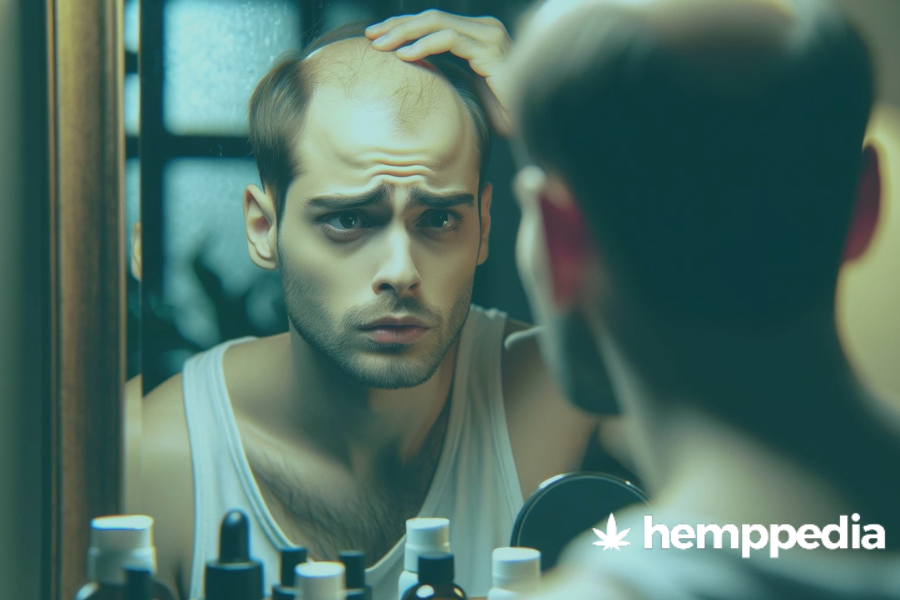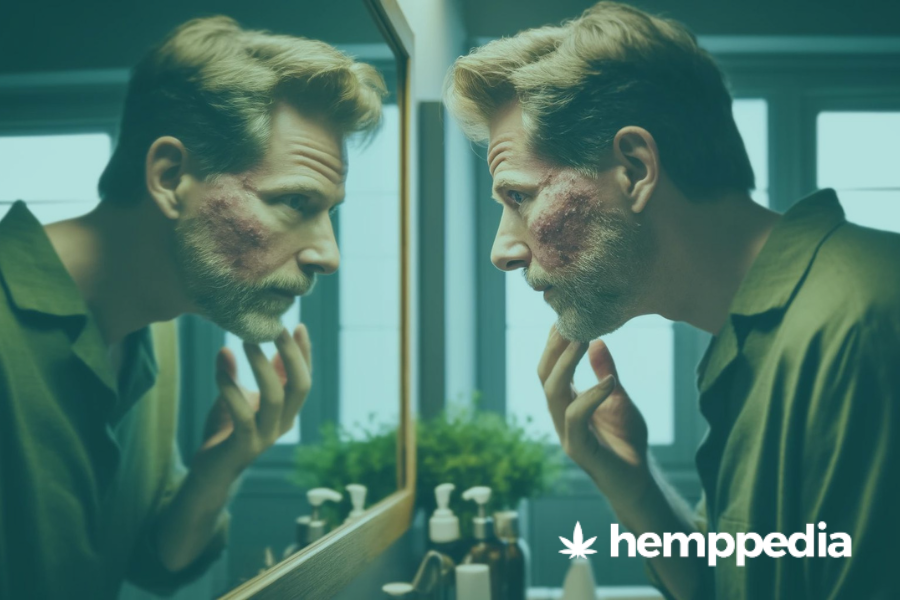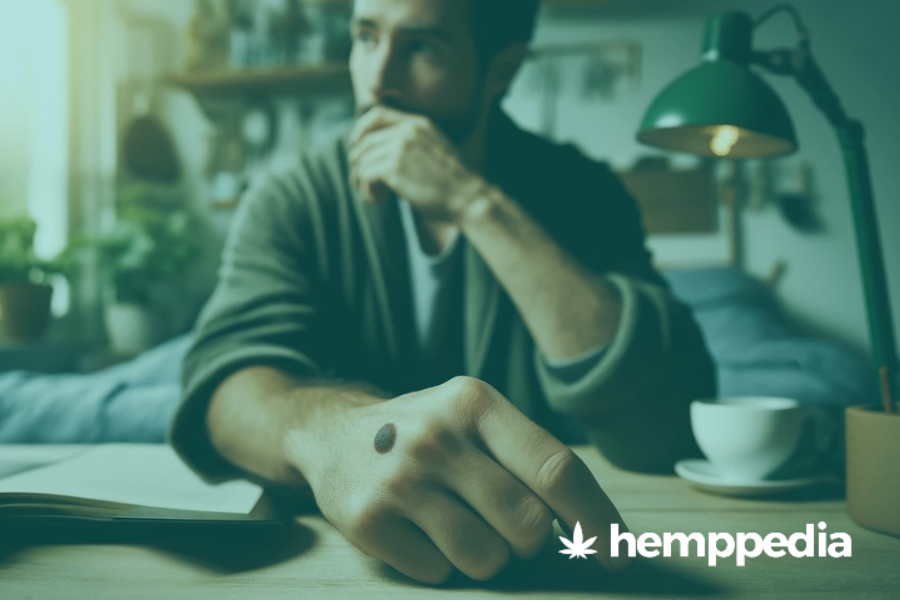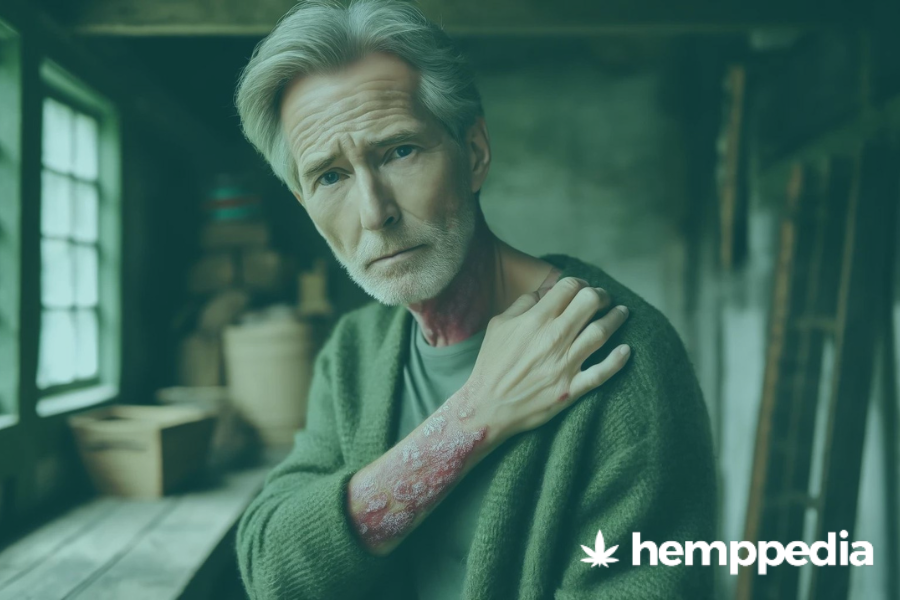Hair loss can be incredibly frustrating. It can have devastating consequences for self-confidence and ultimately, mental health. Sufferers of hair loss or alopecia can often feel at a complete loss as they come to terms with the condition and the idea that there is no cure. The good news is, however, that there is something that could help. CBD oil could be a suitable solution for hair loss, due to its nourishing ingredients and stress-relieving properties.
In this article, we want to take a more detailed look at the relationship between CBD oil and hair loss and conclude whether CBD oil can be a suitable treatment for people suffering from hair loss conditions.
Ordinary Hair Loss vs Alopecia
Ordinary hair loss is usually a genetic condition.1 The condition causes hormonal changes that shrink the hair follicle. This is usually permanent and can be difficult to treat. Often, however, hair loss can be linked to stress or emotional upheaval.2 It can happen in different ways. Some people might experience a thinning of the hair whilst others might lose their hair completely. It can also happen gradually or can happen suddenly.
Alopecia, on the other hand, refers to hair loss that is caused by a medical condition or by other factors. The most common form is known as alopecia areata. This is an auto-immune condition3 that causes the sudden loss of patches of hair on both the head and the body. This happens because the immune system is actually attacking healthy hair follicles, causing the hair to fall out. There are other forms of alopecia but these are often caused by external aggressors, such as damage to the hair or because the body has been put through physical trauma. It is thought that CBD oil can help treat alopecia and we will take a look at these claims.
Does CBD Oil cause hair loss?
Is CBD Effective For Hair Loss?
Studies have shown that CBD oil increases blood circulation and therefore happens to have an effect on hair loss when used directly on the hair follicles because it delivers nutrients right to the source, which stimulates the hair growth and health.
When it comes to CBD and hair health, there is some evidence that applying the oil topically to the scalp can actually promote the growth of the hair, mainly because of the vitamins that the oil contains.4. It is also rich in omega 3 and 6 fatty acids which are known to be essential for healthy hair and to stimulate growth. The omega fatty acids, which are contained in CBD oil, have shown reduced hair loss and increased hair density.5
Furthermore, CBD Oil is a great source of Vitamin E, which according to a medical trial by the School of Pharmaceutical Sciences in Malaysia, can greatly stimulate hair growth and help manage conditions such as alopecia.6 Applying it topically to the scalp can help make the hair that is already there appear healthier and fuller whilst also stimulating those follicles that have been damaged.
Is CBD Effective for Alopecia?
While alopecia is a medical condition caused by an auto-immune disorder it is worth understanding the underlying factors behind the disorder. Auto-immune conditions are often linked to stress and anxiety, with flare-ups often occurring at difficult emotional times. It seems, sadly, that anxiety and hair loss go hand in hand. Luckily, CBD for stress-induced alopecia is a treatment that many people are turning to and with some success.
Studies show that the use of CBD oil can really improve outcomes for those suffering from anxiety and stress-related disorders.78 CBD oil is known for helping those who suffer from stress deal with the rigors of daily life, so it stands to reason that it could help when it comes to anxiety and hair loss9 and help the body get back to other important functions, such as maintaining healthy hair growth.
It is also worth noting that CBD oil can reduce inflammation.10 Since alopecia is caused by an inflamed immune system, it is easy to see how CBD can help sufferers of the condition. Following these findings, it is safe to assume that CBD oil may be a suitable solution for hair loss or stress-induced alopecia.
There are more information to be found about CBD and anxiety on our post: CBD for Anxiety.
How to Use CBD Oil For Hair Loss
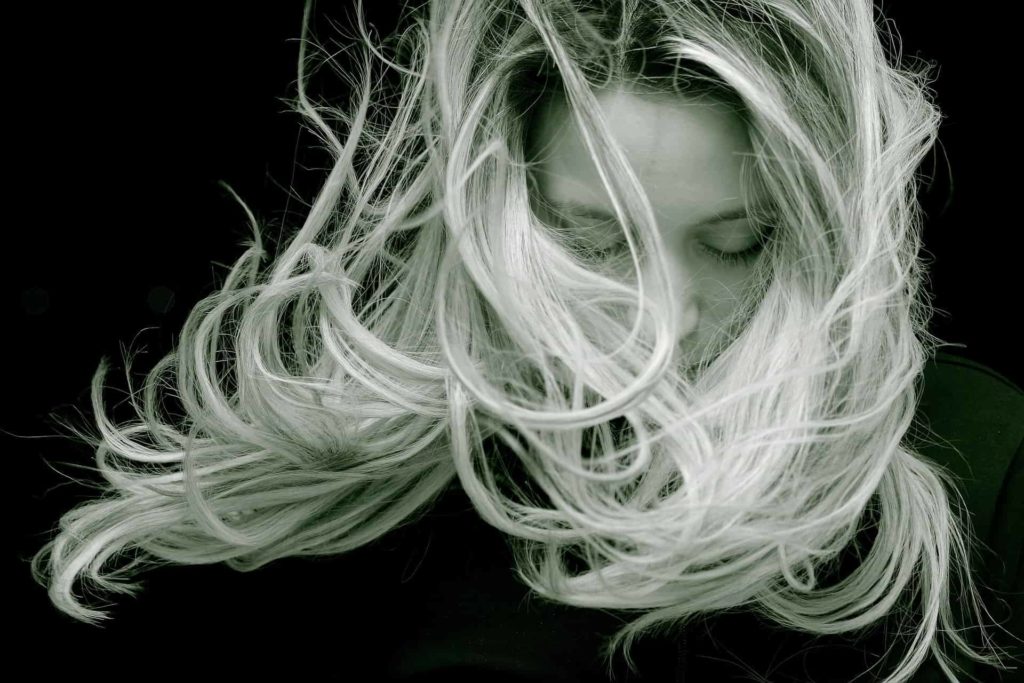
There are two ways to use CBD oil for hair loss: externally and internally. Depending on the reason for losing hair you can either apply the oil topically or ingest it, so it can be absorbed by your system.
Using CBD oil for hair loss has an effective benefit in reducing inflammation, which can help the environment on the scalp to become more healthier and make the hair grow. The oil can also be used for repairing and strengthening the hair follicles directly with applying CBD topicals on the scalp.
Using CBD oil for ordinary hair loss
If you are trying to combat ordinary hair loss, you will need to apply the CBD oil topically to the scalp so that it can get to work on repairing and strengthening those hair follicles directly. The oil can also be mixed with a cream or gel.
Using CBD oil for medically-induced alopecia
If you are experiencing hair loss because of medically-induced alopecia you will need to ingest the CBD oil so that it can get absorbed by your system. This way it can work in helping with anxiety symptoms or reducing the inflammation. You could choose to take CBD oil orally, by dripping it under the tongue and keeping it there until it gets absorbed.
CBD Dosage Guide for Hair Loss
While CBD can be effective for most people, there isn’t a fixed dosage. We encourage everyone to experiment with the dose and look for signs of improvement. As a starting point, it might be helpful for many to look through the dosage guide created by Leinow and Birnbaum. In their book « CBD: A Patient’s Guide To Medical Cannabis »11, the authors recommend the step-up approach which suggests to start low, such as 1 drop, 3 times a day and gradually increase the dosage every 3 days, until you reach 3 drops, 3 times a day.
To find out how to correctly dose CBD according to your condition, read our post on CBD oil dosing.
Bottom line
The world is just starting to open up to the benefits of CBD and hair health and we are finding new uses for it every day. Backed up by medical evidence, it turns out that using CBD oil to fight hair loss can, in fact, be effective. From the nourishing properties of the vitamins to really stimulate hair growth, to the way that the product can help with anxiety disorders and reduce inflammation to help with alopecia, the benefits of CBD oil are endless.
References
- Hagenaars, S., Hill, W., Harris, S., Ritchie, S., Davies, G., Liewald, D., Gale, C., Porteous, D., Deary, I. and Marioni, R. (2017). Genetic prediction of male pattern baldness. PLOS Genetics, 13(2), p.e1006594. [↩]
- Sellami, R., Masmoudi, J., Ouali, U., Mnif, L., Amouri, M., Turki, H. and Jaoua, A. (2014). The relationship between alopecia areata and alexithymia, anxiety, and depression: A case-control study. Indian Journal of Dermatology, 59(4), p.421. [↩]
- Pratt, C., King, L., Messenger, A., Christiano, A. and Sundberg, J. (2017). Alopecia areata. Nature Reviews Disease Primers, 3(1). [↩]
- Pavlovic, R., Nenna, G., Calvi, L., Panseri, S., Borgonovo, G., Giupponi, L., Cannazza, G. and Giorgi, A. (2018). Quality Traits of “Cannabidiol Oils”: Cannabinoids Content, Terpene Fingerprint and Oxidation Stability of European Commercially Available Preparations. Molecules, 23(5), p.1230. [↩]
- Le Floc’h, C., Cheniti, A., Connétable, S., Piccardi, N., Vincenzi, C. and Tosti, A. (2015). Effect of a nutritional supplement on hair loss in women. Journal of Cosmetic Dermatology, 14(1), pp.76-82. [↩]
- Beoy, L., Woei, W. and Hay, Y. (2010). Effects of Tocotrienol Supplementation on Hair Growth in Human Volunteers. Tropical Life Sciences Research, 21(2), pp.91–99. [↩]
- Blessing, E., Steenkamp, M., Manzanares, J. and Marmar, C. (2015). Cannabidiol as a Potential Treatment for Anxiety Disorders. Neurotherapeutics, 12(4), pp.825-836. [↩]
- P. Soares, V., and C. Campos, A. (2017). Evidences for the Anti-panic Actions of Cannabidiol. Current Neuropharmacology, 15(2), pp.291-299. [↩]
- Drugabuse.gov. (2019). The Biology and Potential Therapeutic Effects of Cannabidiol. [online] Available at: https://www.drugabuse.gov/about-nida/legislative-activities/testimony-to-congress/2015/biology-potential-therapeutic-effects-cannabidiol [↩]
- Nagarkatti, P., Pandey, R., Rieder, S., Hegde, V. and Nagarkatti, M. (2009). Cannabinoids as novel anti-inflammatory drugs. Future Medicinal Chemistry, 1(7), pp.1333-1349. [↩]
- Leinow, L. and Birnbaum, J. (2017). CBD: A Patient’s Guide to Medicinal Cannabis. North Atlantic Books. [↩]

